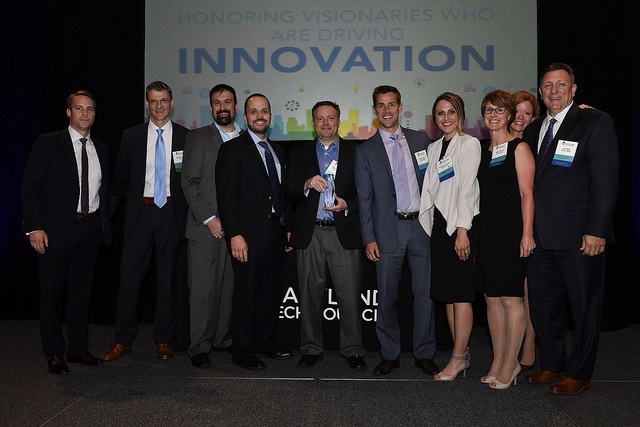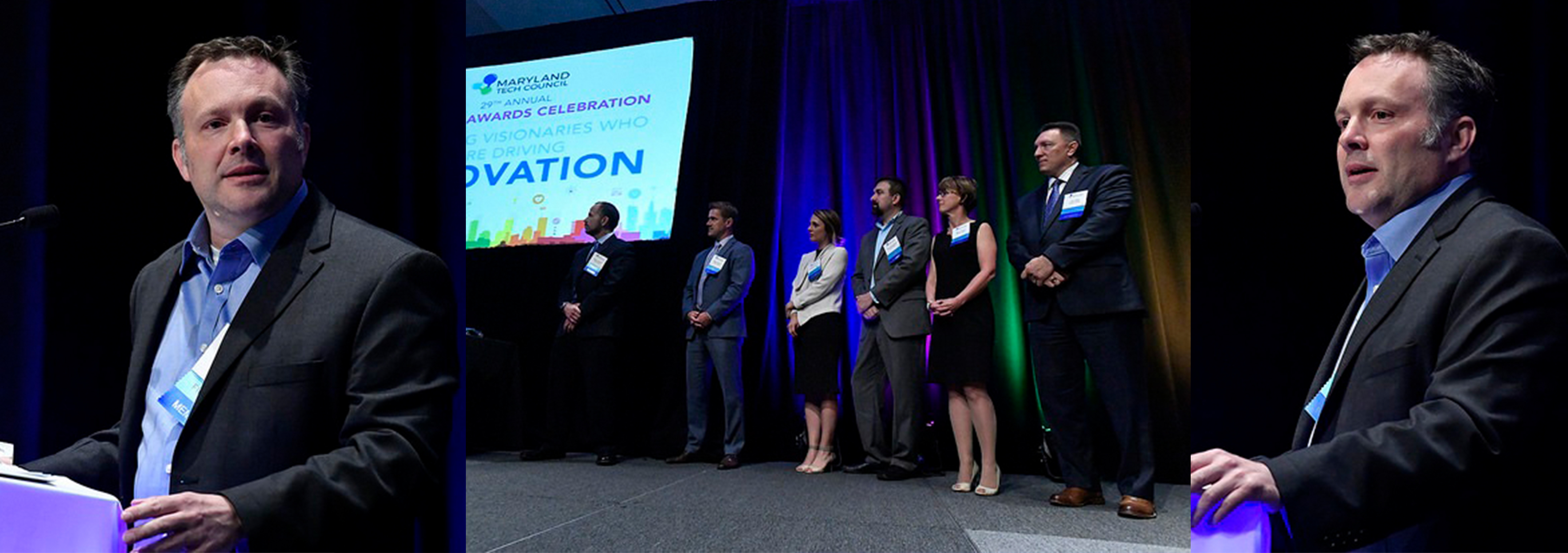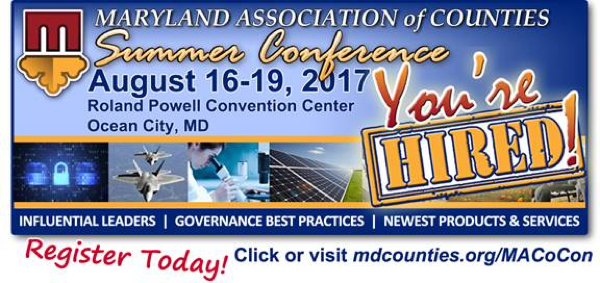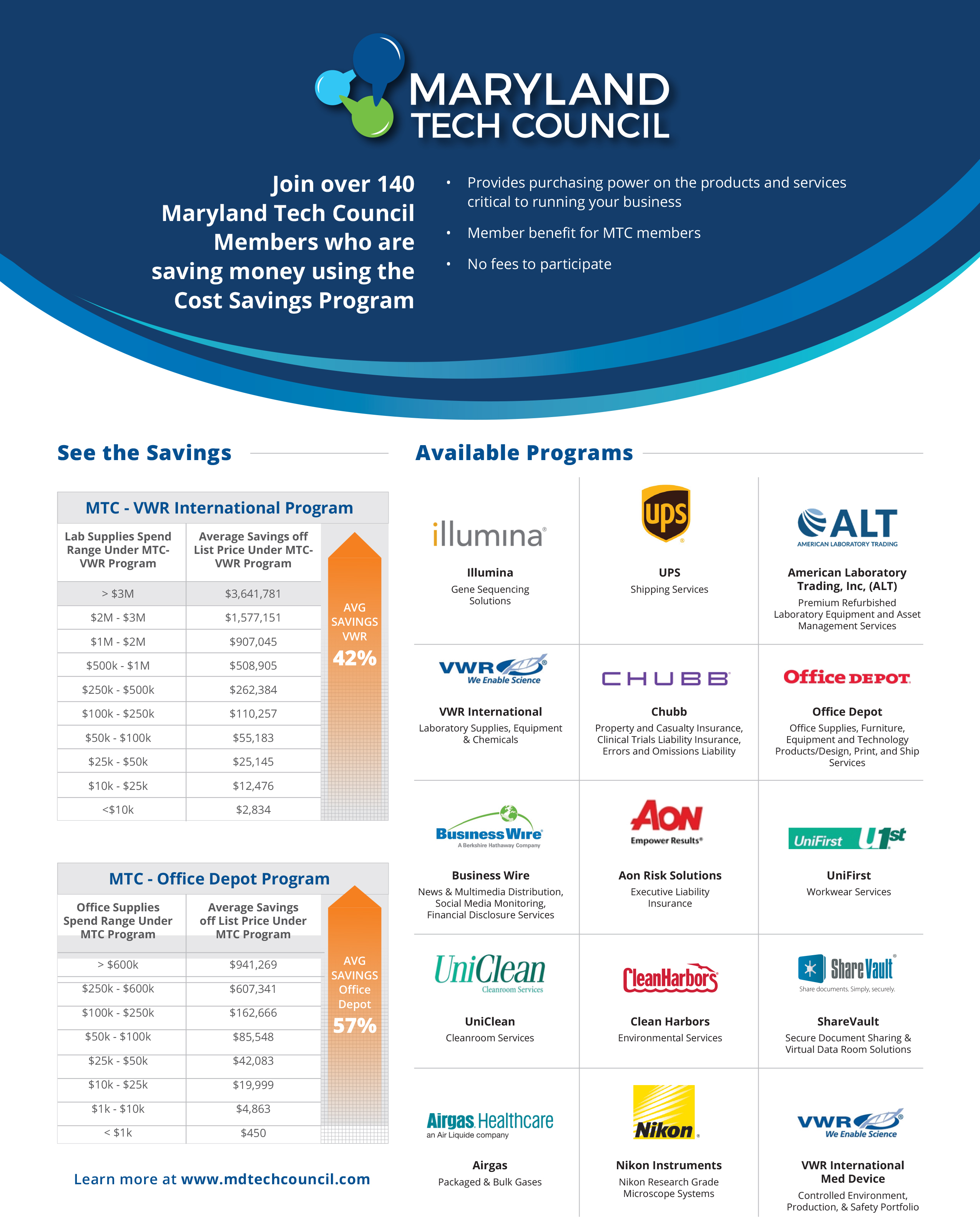Six State Tax Credits Maryland Companies Should Know About
Fortunately, tax season is over six months away, however it doesn’t hurt to start planning. The state of Maryland offers a variety of tax credits for everything from R&D, to cyber to veteran-owned businesses. If your business is established or if it’s in the growing phase and looking for funding, these tax credits may help your bottom line. Take a look to see what you may be missing:
More Jobs for Marylanders
One of Governor Hogan’s top legislative priorities of 2017, More Jobs for Marylanders is a new program that incentivizes and encourages manufacturers to create jobs in areas of Maryland that need jobs the most. Created for new and existing manufacturing businesses, the Program provides tax incentives tied to job creation for a 10-year period, encourages additional investment in new equipment through accelerated and bonus depreciation and helps to strengthen Maryland’s workforce.
New manufacturing businesses locating in a Tier 1 county and creating at least five news jobs may be entitled to a 10-year (1) income tax credit based on the number of jobs created; (2) State property tax exemption; (3) sales and use tax refund for specific purchases; and (4) waiver of all State Department of Assessment and Taxation fees. Tier 1 jurisdictions include Baltimore City and Allegany, Dorchester, Somerset, and Worcester Counties. Tier 2 counties that have been promoted for Tier 1 benefits, per the Secretary’s approval authority to designate three counties, are Baltimore, Prince George’s and Washington Counties.
Hire Our Veterans Tax Credit
This program provides a State income tax credit to small businesses for hiring qualified veterans based on wages paid to those veteran employees. A Maryland employer may qualify for an income tax credit equal to 30% of up to the first $6,000 of wages paid to a qualified veteran employee during the first year of employment (i.e. a maximum of $1,800 per qualified veteran employee). A qualified employer is a “small business” operated by an individual, a partnership, a limited partnership, a limited liability partnership, a limited liability company, or a corporation that employs 50 or fewer full-time employees.
Cybersecurity Investment Incentive Tax Credit (CIITC)
CIITC provides a refundable income tax credit to Qualified Maryland Cybersecurity Companies (QMCCs) that secure investment from investors. The purpose of this new program is to incentivize and attract cybersecurity companies to startup in or move to Maryland; and to attract investment to cybersecurity companies in order to help them grow, create jobs and retain intellectual property in Maryland.
Montgomery County passed legislation to offer a local supplement to the Maryland Cybersecurity Investment Incentive Tax Credit to QMCCs that receive a final Maryland tax credit certificate and have their headquarters and base of operations in Montgomery County. The program is subject to appropriation of funds.
Research and Development Tax Credit (R&D)
Businesses that have qualified R&D expenditures in Maryland may qualify for two state income tax credits, the Basic R&D Tax Credit and the Growth R&D Tax Credit. The tax credit remains in effect until January 1, 2020, subject to extension by the General Assembly.
- Basic R&D Tax Credit: Three percent (3%) of eligible R&D expenses that do not exceed the Maryland Base Amount. If the total credits applied for exceed $5.5 million, the business’s Basic tax credit is prorated.
- Growth R&D Tax Credit: Ten percent (10%) of eligible R&D expenses in excess of the Maryland Base Amount. If the total credits applied for exceed $6.5 million, the business’s Growth R&D tax credit is prorated.
Biotechnology Investment Incentive Tax Credit (BIITC)
BIITC provides an investor with income tax credits equal to 50% of an eligible investment in a Qualified Maryland Biotechnology Company (QMBC). The program supports investment in seed and early stage biotech companies to promote and grow the biotech industry in Maryland.
BIITC provides an income tax credit equal to 50% of an eligible investment in a QMBC up to $250,000 for each QMBC per fiscal year. Total credits issued during the fiscal year cannot exceed the budget amount and are, therefore, issued on a first come basis. The credit is refundable if the investor has no Maryland income tax liability.
Employer Security Clearance Costs (ESCC) Tax Credit
The ESCC Tax Credit provides income tax credits for expenses related to federal security clearance costs, construction of Sensitive Compartmented Information Facilities (SCIFs) and first-year leasing costs for small businesses doing security-based contract work.
- Security Clearance Administrative Expenses Tax Credit
A business may qualify for an income tax credit up to $200,000 per taxable year for qualified security clearance administrative expenses. - Sensitive Compartmented Information Facility Costs Tax Credit
A business may also claim a credit against its Maryland income tax for costs related to the construction or renovation of a SCIF located in Maryland. The SCIF must be accredited by the appropriate federal agency. For costs related to a single SCIF, the credit is equal to the lesser of 50% of the costs or $200,000. For costs related to multiple SCIFs, the credit is the amount of costs up to $500,000 per calendar year. - The First Year Leasing Costs Tax Credit for Qualified Small Business
A qualified small business may also claim a credit against its Maryland income tax up to $200,000 for costs for rental payments during the first year of a rental agreement for leasing spaces to perform security-based contracting work.
Check the State of Maryland website for details, exclusions, and updates at http://commerce.maryland.gov/fund/programs-for-businesses.
Source: http://commerce.maryland.gov/fund/programs-for-businesses

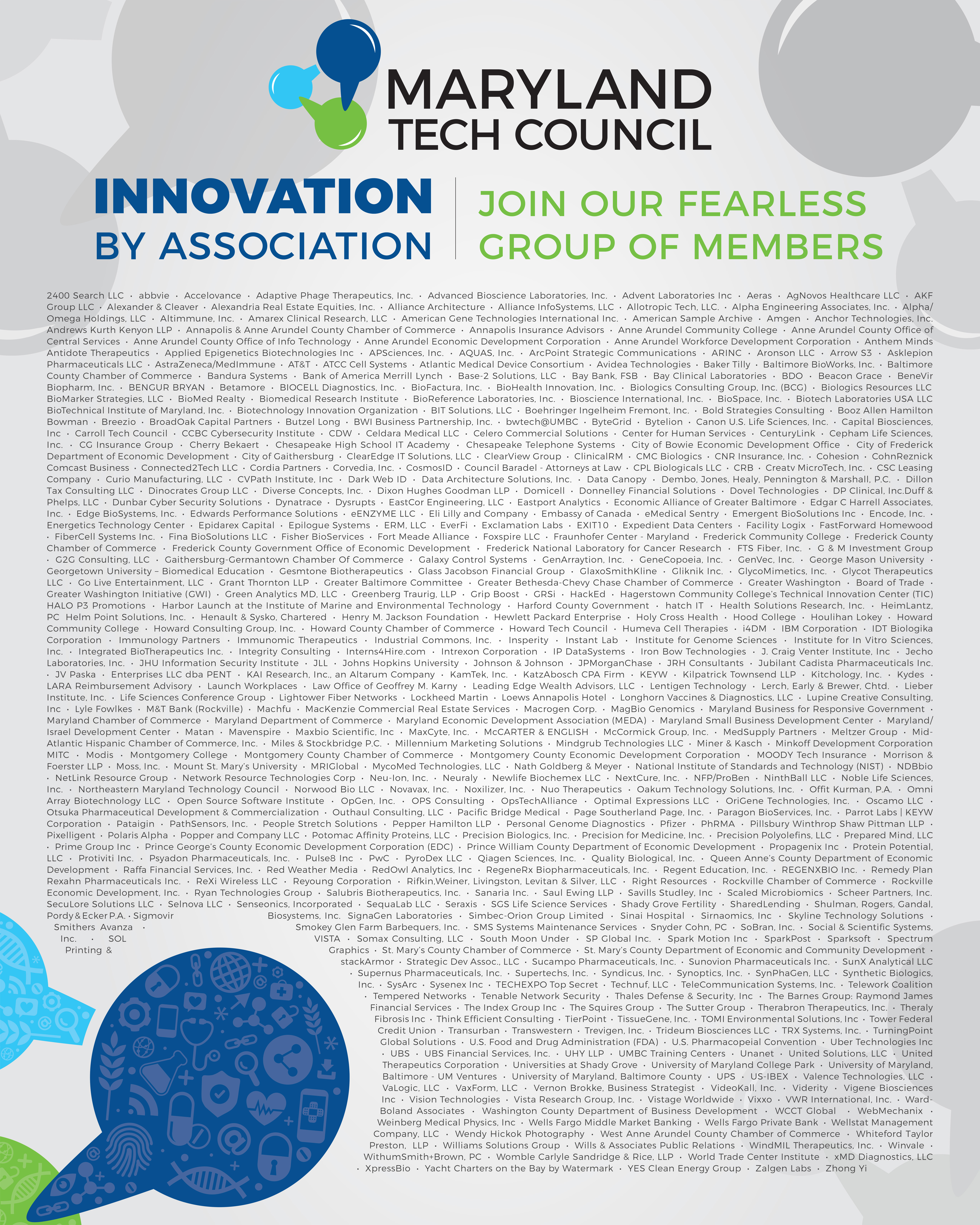
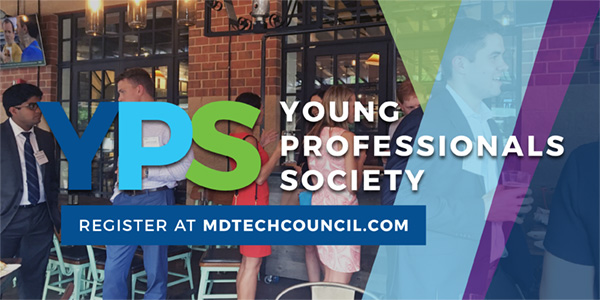
 The Maryland Tech Council Venture Mentoring Service Program (MTC VMS) is a team mentoring program based on a model developed by MIT. The program has been adopted in over 70 communities around the globe; the MTC VMS program is the 50th program. The ultimate goal of the program is to bring employment opportunities and capital to the area in the technology and life sciences fields by helping companies grow faster.
The Maryland Tech Council Venture Mentoring Service Program (MTC VMS) is a team mentoring program based on a model developed by MIT. The program has been adopted in over 70 communities around the globe; the MTC VMS program is the 50th program. The ultimate goal of the program is to bring employment opportunities and capital to the area in the technology and life sciences fields by helping companies grow faster.